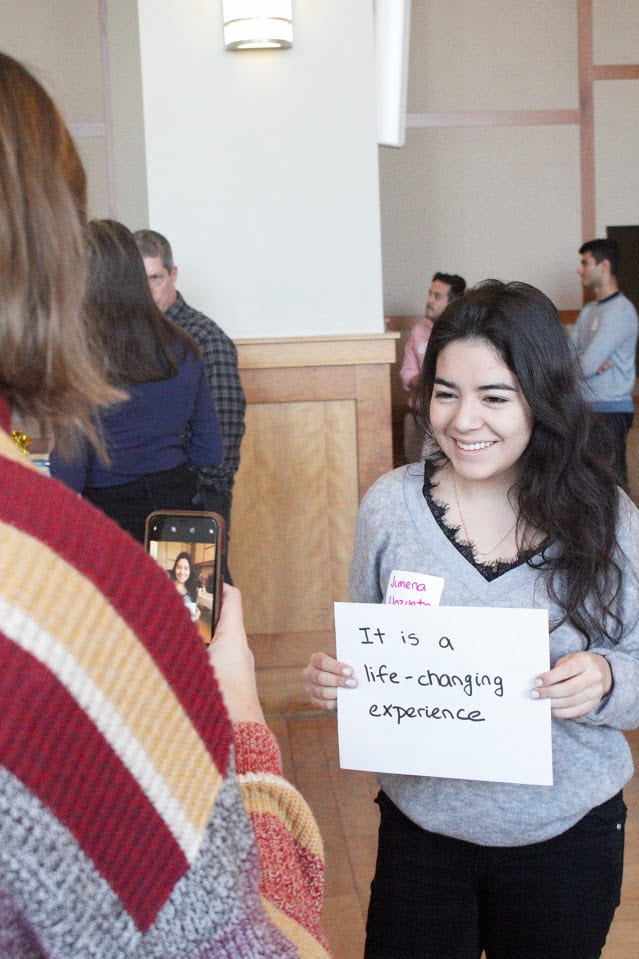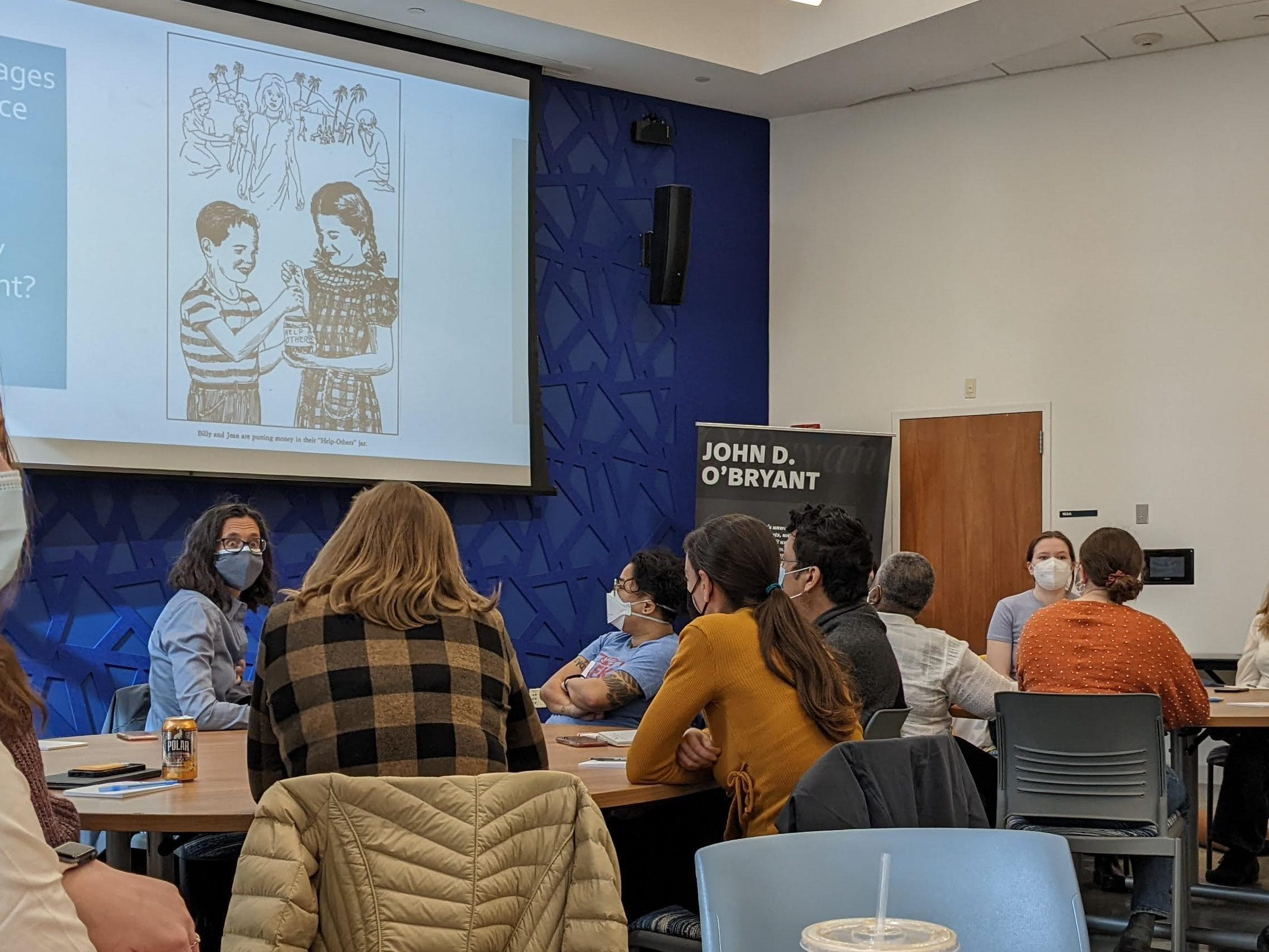Service-Learning (S-L) is a form of experiential learning for students and a teaching tool for faculty that purposefully integrates academics and service or community-engaged projects to meet classroom and community goals throughout the semester. As part of their coursework, students partner with community-based organizations, nonprofit organizations, schools, and government agencies as a way to learn the course material.

Community-Engaged Courses as Experiential Learning
Northeastern’s commitment to experiential learning has also recognized community-engaged courses as a form of experiential learning for students. This means that adding a community-engaged component to your course may make it eligible to be designated with various attributes in Banner:
- ‘NUpath Integrating Knowledge and Skills through Experiences’ Attribute: Four-credit undergraduate courses where S-L is a requirement and a substantial part of the course may be eligible to receive this attribute. CETR will send a list of approved courses to the Office of the Provost and Office of the Registrar to be appropriately marked in Banner for student records. Faculty do not need to apply to the University Undergraduate Curriculum Committee separately.
- ‘With Service-Learning’ Attribute: All courses that require an S-L component will automatically be tagged with this attribute in Banner after the semester has started. This allows our program to partner with Institutional Research and Decision Support to explore patterns and trends of student data and experiences
Getting Started
The FALL 2024 Call for Courses is now open! If you are interested in teaching a course with community engagement in FALL 2024, click the link below:
A few months prior to each semester, CETR sends out a Call for Community-Engaged Courses & Projects, where faculty members are asked to indicate their plans to teach with a community-engaged component the following semester. In this we collect general course material, information on the type of support you would like, and motivations for wanting to integrate community into your teaching.
Fall semester planning begins in March
Spring semester planning begins in October
This planning calendar allows us to make connections with service-learning teaching assistants, community partners, as well as mark upcoming courses with the service-learning attribute prior to the start of student registration.

Including Community-Engaged Learning Outcomes
During the 21-22 year, CETR went through an in-depth process of writing learning outcomes that represent the variety of student learning that can occur through a community-engaged course. Faculty should utilize this from to identify a collection of outcomes that can be adapted to their specific course.
Support for Community-Engaged Courses
Service-Learning Teaching Assistants
Our team recruits, hires, and trains Service-Learning Teaching Assistants (S-LTAs) to support community-engaged courses at the University. S-LTAs act as project managers and logistics coordinators for their assigned course and associated partnerships as a way to foster the principles of community engagement in the course. We also hire students as Team Managers (experienced S-LTAs that lead a cohort of S-LTAs) and as members of our Street Team. Learn more here.
Community Partnerships
Community-based partnerships are the heart of our community-engaged teaching and research work. Without the rich relationships we have with our community partners, our work would not be possible. Community Partners are typically community-based organizations, government agencies, educational institutions/schools, neighborhood associations, community leaders, or non-profit organizations. Most of our engagement with community partners happens through our community-engaged learning courses, though we do have other mechanisms for connecting and supporting community-driven courses. Our team can support faculty in their own relationship building or identify and confirm partners for courses. Learn more here.
Course Design & Consultation
The CETR team can share numerous resources around meaningful engagement in service-learning courses, leveraging an S-LTA in the course, collaborating with a community partners, assessing and evaluating student learning, activities to enhance student learning, and more. Resources for course design can be found here: https://cetr.northeastern.edu/course-syllabus-design-for-community-engaged-courses/